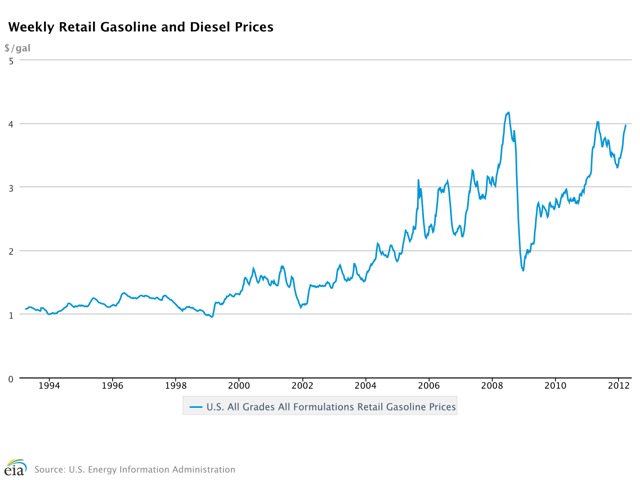WASHINGTON — As the Senate voted 51-47 against a bill that would remove billions of dollars in oil company tax breaks, members of the Senate Committee on Energy and Natural Resources pressed a panel of experts on the nation’s rising gas prices.
“Most who are really feeling the pain at the pump — feeling the pain in their wallets and in their pocketbooks — they don’t view this as a political opportunity,” said U.S. Sen. Lisa Murkowski, R-Alaska. “They expect us to do something here. They want to know what it is that can be done.”
The average price of gasoline in the United States in February was $3.58 a gallon, an 11.5 percent increase over February 2010, the U.S. Energy Information Administration said.
The continued rise of gas prices is largely the effect of a volatile global market, experts who testified before a Senate energy committee said.
Representatives from government, business and research painted a complex portrait of the global oil market. Despite a decrease in demand and increase in supply in the United States, the witnesses said the high gas prices are largely due to geopolitical instability in major oil exporting countries like Sudan, Nigeria and Iraq. The prospect of U.S. sanctions on Iran could further drive prices upward, the panelists said.
“We are held captive by global markets that we have no control over,” said Sen. Joe Manchin III, D-W.Va.
Senators expressed frustration at the depiction of an international oil market where changes in U.S. production levels have a relatively small effect on the price at the pump.
Searching for solutions in an important election year, senators quizzed the panelists on the potential outcomes of opening federally protected lands to drilling, constructing the Keystone XL pipeline and ending tax breaks for major oil companies.
Frank Verrastro, senior vice president of the Energy and National Security Program said elimination of tax breaks for oil companies would lead to little change to the pump price of gasoline due to the global nature of the oil market.
The Keystone XL pipeline was designed to move tar sands oil from Canada to refineries along the U.S. Gulf Coast. U.S. President Barack Obama refused a permit to build the proposed 1,700-mile pipeline because of concerns about the route and, he said, an arbitrary deadline for approval set by Republicans.
Witnesses said again the pipeline wouldn’t have much of an effect on retail prices but would deliver long-term economic, psychological and geopolitical benefits.
Earlier Thursday, Obama pushed the Senate to support the bill that would ultimately be defeated and condemned tax breaks for the oil industry.
“It’s like hitting the American people twice,” Obama said. “You’re already paying a premium at the pump right now. And on top of that, Congress, up until this point, has thought it was a good idea to send billions of dollars more in tax dollars to the oil industry.”
When pressed for solutions, the panelists called for an “all of the above” approach that would include a variety of new and old sources for energy but downplayed the chance of any immediate cost relief.
Verrastro said he would “welcome any and all production” but that an increase in U.S. oil supplies wouldn’t necessarily translate to lower gas prices.
The United States could get breathing room to develop alternative energies and restore its status as a leading oil exporter if it finds ways to increase domestic production.
“With the ability to access these new, unconventional resources, we may very well be on the verge of an American energy renaissance,” Verrastro said.

